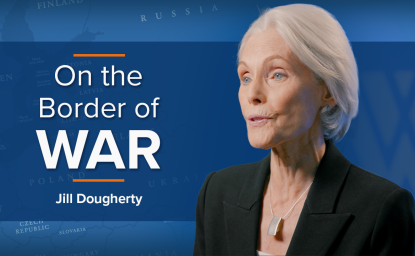On November 4, 1985, Nelson Mandela opened the Cape Times newspaper from his jail cell and was surprised to see a full-page interview on his colleague, exiled African National Congress leader Oliver Tambo. At that time, anyone in South Africa who dared quote the opposition risked prosecution. The interviewer, Anthony Heard, then editor of the Cape Times, incurred such a fate.
Heard was arrested and subsequently fired from the paper, though he continued to fight tirelessly at home and abroad against press restrictions during the apartheid era. Eventually, the charges against Heard were dropped and times were beginning to change; apartheid was abolished in 1990 and freedoms began to take root. When South Africans elected Mandela president in 1994, Heard joined the administration.
Heard, currently spending several months as a Wilson Center public policy scholar, is writing a book, titled, 6,000 Days, which chronicles his 16 years as special adviser to the government and presidency of South Africa, from June 1994 to January 2010.
"Going into our 17th year of democracy, I think it's a good time to look back on where we succeeded and where we failed," said Heard. "We've come a long way and should be seen as a friend of liberty."
South Africa has made notable progress with freedom of expression and association, Heard said. A nation committed to democracy, South Africa can play an important role on the world stage, he added. "We can be an honest broker, as we're not aligned to one ideology or power bloc."
Looking back, however, "We were a racist society," Heard lamented, "worse than anything you in the U.S. had in the south." While great progress has been made with respect to race and gender, he said, residual racism is still strong and remains a challenge.
"The legacy of Mandela is our greatest asset—his generosity, his respect for others, his dignity after 27 years in prison, and he's not vengeful," said Heard. "He's a most inspiring human being."
During the last 16 years, Heard reflected, South Africa's economy has grown substantially and was not hit too severely by the global economic recession. The government has built low-cost housing for millions of people, though more is needed, and provides fresh running water for most of its 49 million people. And South Africa is making great strides in communications technology; in fact, tens of millions of South Africans use cell phones.
South Africa continues to innovate in many areas, and Heard speaks optimistically about the future. In the immediate future, South Africans take tremendous pride that their country is hosting the soccer World Cup this June.
But many challenges remain, including improving education for all and reducing unemployment and poverty. Another challenge that continues to plague South Africa is addressing HIV/AIDS. Heard said the government was slow to respond to the crisis for many years but treatment and prevention have advanced dramatically in the past decade.
"We need a workable, non-racial society," Heard said. "We have the laws but we need that [mindset] in the hearts of the people."
By Dana Steinberg, Outreach & Communications




